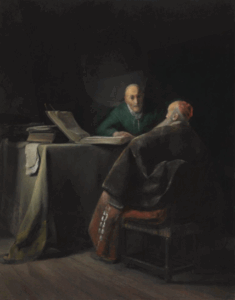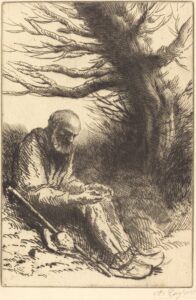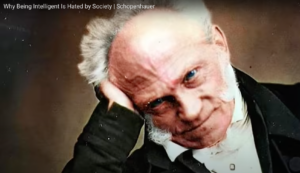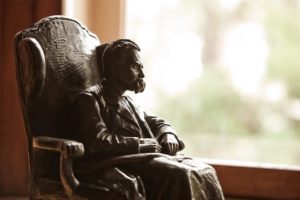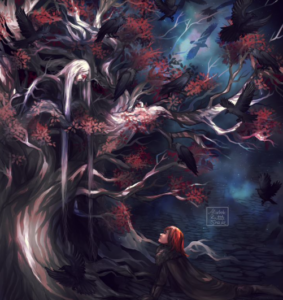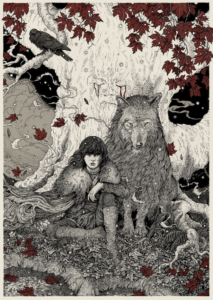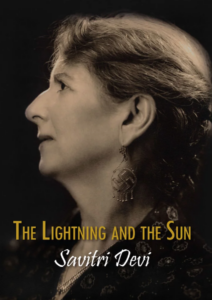Editor’s Note: My recent exchange with
Benjamin this morning is worth a post:
______ 卐 ______
Benjamin said: The most offensive comment I ever get from anyone in my life on anything creative or meaningful (presenting books, paintings, articles, whatever…) is ‘oh, that’s interesting’. One knows the person couldn’t give a damn about you at that point. It’s simply filler, as they never, ever elaborate why. I’m still thinking about presenting Consumption to my eldest aunt – one of my mother’s surviving sisters, and the closest to me growing up – but I know it’ll either be ‘oh that’s interesting’ or ‘that’s very sad you write that’, and ‘ I’ll have to give it some thought’, or stub words to that effect, cutting off all further emotion, discussion and commitment.
I should say, I think the only reason my mother wanted to read my book at first was to humour me, then increasingly to prove me wrong (I was critically examined over many sections), and finally in tears when she realised she couldn’t, she kind of softened towards me. I find it a tragedy she died so soon afterwards, and I never got to discuss it with her. All I know is she agreed (or if she still didn’t on anything she’s taken it into the ground with her).
Dad will never read it, that’s for sure. If you forced him to, his response would be to tut and call it fantasy, and then if I persisted, to shout at me, and to cut me off forever in rage and social embarrassment. I wrote a spurious book many years ago briefly mentioning Dad’s conduct and he did read a few lines of that one, and I remember all he said was “you don’t make me look very good in this”, and laughed a little, as if what I had written was hysterical nonsense, or a big neurotic running joke, unable always to twig that he simply wasn’t ‘very good’ to me, no. It’s not even denial.
I’m sorry for your tragedies, and for your uncle’s death. I’d like to hope that what happened to Corina and Octavio (and his daughter) cannot happen again. But how does one change society on this taboo issue if no one is prepared to read these books – or always too little too late? I suppose one can still put them out there, and hope. I always wanted psychiatry destroyed in my lifetime. I don’t think that’ll happen though, although I see it as a major gatekeeper to the (parental) trauma model being understood by the public.
I think I use you as my witness personally. I hope it isn’t an imposition. Ideally, I would have had a family or local friends to go to, but their silence and standoffish ignorance on this matter is galling. I’m not used to being asked what’s wrong.
I responded: That’s precisely why the encounter in my life of someone like Paulina, the first person who took pity on me, was so important even though it happened more than twenty years after my teens (what Miller calls an “enlightened witness”). Ideally, someone should appear when you’re being abused as a child. That and only that could have saved us (what Miller calls a “helping witness”). The sad thing is that many didn’t have either…
And when it comes to the mental health professions, psychiatry is the way the System defends itself; like the Inquisition defended the Roman Church against the dissidents of the time. Thomas Szasz wrote a book comparing psychiatry to the Inquisition, and he said something that stuck with me: “An Inquisition [like psychiatry] cannot be reformed, only abolished”.
Indeed, and this shows that even people like Colin Ross, the current proponent of the trauma model, are still lost on this point—like John Read et al., who believe that change is possible within academia. They’re like white nationalists who believe that voting for Trump can bring about change. In fact, WN is another variant of country-club conservatism as Michael O’Meara put it, an American who knows French.
Plus ça change, plus c’est la même chose.
Benjamin said: So it seems, as with the other issues we discussed recently, that it’s come down to this again: the necessity of a (violent, it’s obvious there is no other sort) revolution, in this as in all areas… what we really mean by bringing down the System, across all its entangled branches and avenues. Everything has reached a multi-faceted dead end otherwise… science, technology, academia, health, family wellbeing… the race itself is long-stalled biologically, at least since the Cro-Magnon era. I suppose the only thing to do now is to school would-be revolutionaries and auxiliary radicals on why they’re fighting (or will be fighting), which I suppose is what this site functions as, beyond your autobiographical space.
Personally, from what I note, the 4 words ["Eliminad todo sufrimiento innecesario" —Ed.] seem far harder for people to latch onto and assimilate than the vaguer, more generalised concept of the 14, even though I see both as to some degree synonymous, or semi-symmetric perhaps.
Eventually we’ll have to go somewhere else for those sorts of conversations. I’m not sure of the prudence of me continuing to type this even, right out in the open. The stepping stone from the theoretical to the practical is the hardest for me to strategize, the point where mutual internal jihad had reached its zenith, so to speak, and there should then instead be organization, and such, etc.
Anyway, I’m getting ahead of myself. I know I’ve found it very frustrating for decades, where no one has really taken the slightest bit of interest (care) in my history, and yet have still professed to being my friends… ‘twigging’, and realising in clarity the scale of this problem across our race drives one to want to act, and as soon as possible (even though there is no way to do that currently).
I responded: No: there’s no way to do it, and you can see what happened to our friend Tyrone for even suggesting it on podcasts (although years ago his parents put him in a psychiatric hospital for a while, now the System has locked him up for seven years!).
Mauricio liked my Paths of Glory metaphor. Kirk Douglas’s soldiers couldn’t go out to fight because of the hail of bullets. It was a time of staying in the trenches in a state of exasperation, but necessary…
The degenerate Aryan I recently saw in Europe is still in “happy mode”. Several sociopolitical, economic, and especially energy catastrophes will have to converge for him to enter “angry mode”; eventually a defensive “combat mode” and finally “killing mode” (bloody revolution). In the meantime, they’re behaving like lobotomised eunuchs.
Unlike Europeans, racialist Americans are no longer lobotomized: they’re beginning to think. But they’re still eunuchs. Otherwise they would already be talking about how to bring Turner’s diaries into the real world.
Benjamin said: P.S. I just re-read the, as you say, epistolary scold from Corina. I was particularly struck by the lines (and can only imagine how much they hurt and infuriated you):
“The damage is done and only you can fix it.”
and
“…not all people in the world are therapists or psychiatrists or psychoanalysts and we don’t want to hear about problems, let alone such serious ones. We are normal people who run away from problems. We are not interested and cannot do anything about it.”
Both directly echo things my partner has said to me before when I raise the issue of my childhood with her, the first being the equivalent of ‘just let it go’ (which is impossible naturally short of developing dementia, and translates literally as ‘repress yourself again’), or ‘get over it’ (a callous statement in itself indicating their lack of patience/empathy more than any psychological insight – they don’t realise you’re trying to do that, and can only do that if listened to). And the second a terrible misunderstanding – you are at first not looking for change, just to be listened to at all: as another example, in my case I didn’t want to be taken out of my environment when I emailed my Tyrolean penpal Harald about latter-day trauma, nor would it have been possible for him to do so, I just wanted to be listened to long-distance… also, as if one needed a license or a professional qualification to be a compassionate listener! Their ‘we’re not therapists’ line is simply a cop out to avoid them of their responsibility.
I can see why Corina wrote why she did then, as it’s all too common to, as you say, see things backwards, putting again all responsibility for both the experiences and the healing process onto the victim. People are so quick to give this prescriptive black pedagogy ‘advice’, or otherwise to act non-committal with the silent treatment, or wash their hands of the matter. Another reason I’d like vast swathes of the population exterminated, as by your 4 words doctrine – if they really can’t develop empathy for these matters then they’re simply a liability in general.
I responded:
Corina was the only one who saw what my parents were doing to me when I was a teenager, but she didn’t confess it to me because she was fourteen years old, and when she tried to tell my mother, she only received a slap in the face, which ended the argument for decades, until Corina herself developed paranoid symptoms, although in her lucid moments we were finally able to communicate.
But when Cori wrote that letter she was acting as an agent of the System, what Miller calls “poisonous pedagogy”. Szasz hits the nail on the head when he said that psychiatry is like paediatrics: instead of listening, they try to lecture the victim (although Szasz never fully grasped the trauma model).
All these people giving advice don’t realise that what they’re doing is similar to telling the messenger who has just escaped the clutches of someone like Jeffrey Dahmer, and wants to alert his neighbours that there’s a serial killer in the block to calm down; to seek professional help, to forgive and forget, to not suffer from self-pity but take a stress pill instead, etc. The result of this insane deafness? Another victim of the serial killer!
This crazy example is not a false analogy.
If my grandmother Yoya had listened to me during the anecdote I tell at the beginning of “Nobody Wanted to Listen” she could have acted as my helping witness, intervened to the best of her humble ability (my parents had the power), and prevent my crucifixion and, in the years to come, prevent Corina’s psychological catastrophe too. But we lacked a helping witness.
All this explains, in effect, why I have developed an exterminationist philosophy. The current version of Homo sapiens remains a kind of Homo sapiens neanderthalensis in the sense that it still needs to be greatly ennobled.
